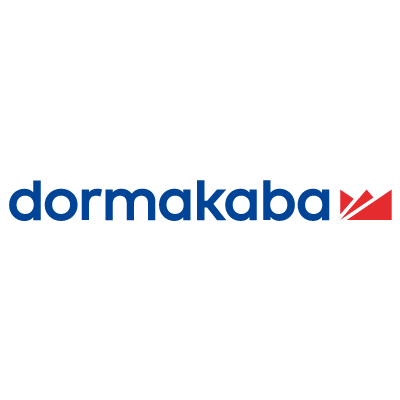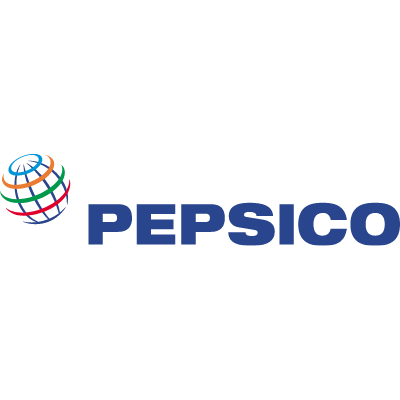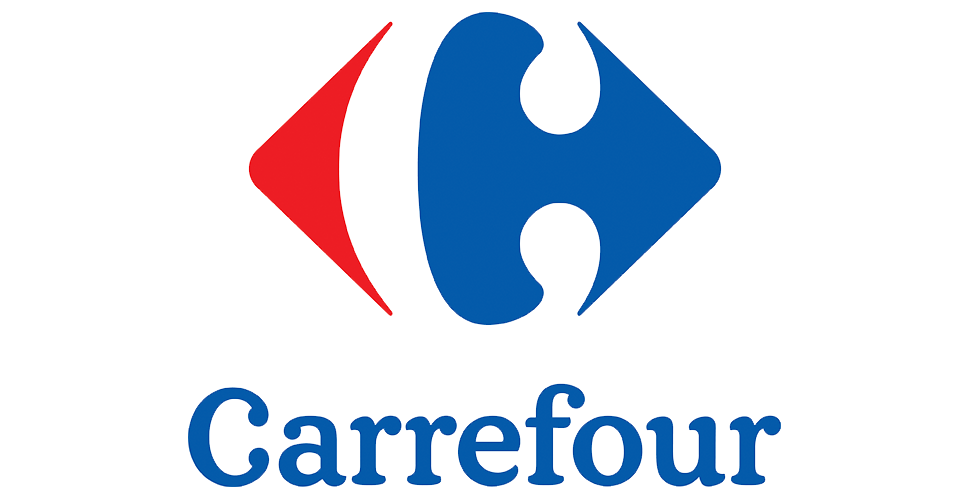In this article, we delve into the transformative power of custom B2B e-commerce platforms specifically tailored for the manufacturing industry. Discover how adopting a custom B2B e-commerce platform can expand your market reach, enhance client experience, and drive operational efficiency, revolutionizing your business in the digital age.
The COVID-19 pandemic caused a massive surge in online shopping by consumers, leading to increased confidence in the business-to-consumer (B2C) sector. This impact has successfully permeated the business-to-business (B2B) e-commerce sector, as decision-makers in small and midsize businesses (SMBs) already have personal experience with online shopping. Market trends indicate that the B2B e-commerce business model is expected to hit $2 trillion in sales this year. Additionally, data from Statista’s market research shows that around 17% of B2B sales in 2023 will be generated digitally.
Consequently, building a custom e-commerce platform can be an effective B2B strategy complementing the traditional sales model, especially if a company designs a custom e-commerce website. Online B2B product catalogs can increase brand awareness and sales efficiency, and even though product sales do not always have to take place online, such platforms can help in the presentation phase based on the company’s product portfolio and enhance the order-building process.
E-commerce platforms and the manufacturing industry
E-commerce websites are online platforms used by businesses to showcase products and sell them to clients. They consist of a wide range of features including product catalogs, user interfaces, and payment gateways. Although they are used by a wide range of businesses across different industries, manufacturing companies, especially those that rely on traditional business practices and already have their own distributors, can greatly benefit from a custom e-commerce solution.
The characteristics of a company that should consider implementing a B2B custom e-commerce platform include:
#1 Many SKUs (stock keeping units)
If a manufacturing company has many SKUs, a custom e-commerce platform can streamline the entire sales process for online businesses. Such a platform enhances the process of product browsing, making price comparisons, and making the right product selection. With such a B2B custom e-commerce platform, clients can compare multiple products based on pricing, specifications, size, availability, etc. This allows them to make appropriate purchasing decisions based on their specific preferences and, as a result, businesses can generate more sales.
A well-designed custom e-commerce website can help businesses organize their products in different subcategories, allowing clients to easily search for and find specific items when dealing with a large number of SKUs. It should be noted that such digital solutions are vital in streamlining the shopping experience, as they are built with responsive user interfaces and contain other business tools that make order placement, payment, and tracking easier.
#2 Numerous orders per month cumulatively from multiple B2B clients
A custom e-commerce website can help a business that receives numerous orders per month from multiple B2B clients improve its efficiency, sales, and client service. These platforms have business tools for streamlining the purchasing process and reducing the order handling time when dealing with multiple orders from several clients. In addition to that, a custom solution can also enhance client support with automated responses and generate more sales by providing buyers with a wide range of products and promotions/discounts that entice buyers to make more purchases.
#3 Buyers are predominantly medium-sized companies and can also include private individuals
B2B platforms are almost essential for companies that cater to a diverse client base, including both small and medium-sized companies as well as individual customers who purchase products such as heating equipment, construction chemicals, doors, and windows. These products attract buyers such as private individuals, small renovation teams, and large developers. Regardless of their size, they have common needs and need convenient access to product information, which includes availability, price, and specifications.
While manufacturers may not be able to single-handedly deal with orders, having a digital presence such as a custom e-commerce website can help streamline the whole process thanks to their intuitive user interfaces and custom functionality, which can make it easier to close sales generated from the online channels.
#4 Products that sell better due to good client reviews
Building a custom e-commerce solution can allow an online business to leverage client reviews. It allows buyers to leave comments and important product feedback by leaving positive reviews that drive traffic organically. Generally, good recommendations such as positive client reviews serve as product endorsements for new potential buyers. Additionally, they play a role in enhancing traffic generation for a company’s online product catalog or an online website.
#5 Low repeatability of items in the basket and low order regularity
Digital business platforms can be used to observe client interests and analyze purchasing trends. A manufacturing company with an e-commerce store can use the platform to observe irregular ordering patterns and interest in different products. Insights derived from this can be used to determine whether the client may need to browse and explore more about different product offerings and understand the features of products they have not bought yet before finally making a purchasing decision. In such a case, it may be challenging for sales consultants to effectively deal with a large client base.
However, e-commerce platforms allow thousands of clients with different needs to browse, learn product features, create tailored shopping lists, place orders, and eventually make payments. Furthermore, such a B2B site is suitable for implementing loyalty programs and facilitating targeted promotional offers, based on a client’s shopping interests.
Read more on e-commerce development:
Headless CMS vs. traditional CMS—comparison
E-commerce best practices to increase sales and stay ahead of the competition
A new frontier of e-commerce: digital healthcare platforms
5 B2B e-commerce trends to watch in 2023 and beyond
What is a D2C business model and why apply it to your business
B2B custom e-commerce platform—potential use cases
A report by McKinsey & Company indicates that two-thirds of B2B companies currently offer different forms of e-commerce options when engaging with their clients. A B2B custom platform comes with many benefits, and this model can be applied by a variety of companies in the manufacturing industry. Let’s take a look at its potential use cases.
#1 Manufacturer of construction chemicals
Chemicals manufacturers serve individual clients and wholesale clients, for example construction teams, via a single online platform that provides the target audience with the appropriate product knowledge featuring specifications and visual instructional materials regarding product use. In addition, the same platform can allow interested retail customers to digitally create their product purchase lists online, while final sales for wholesale clients and construction teams can be made through local distributors.
#2 A manufacturer and distributor of medical products
A manufacturer and distributor of medical products is developing a website to handle sales in the large pharmacy chain. They want to offer their clients a seamless online search and shopping experience for medical products as they browse, read product features, make selections, and place their orders. To meet their different demands, such a platform provides additional information such as pricing and product availability, allowing the manufacturers and distributors of medical products to effectively manage their production and inventory levels based on client demand.
Additionally, the pharmacy chain will implement a subscription model for this online store so that clients with recurring orders can predefine their needs and receive their orders on time. This enhances convenience for clients while ensuring the business has a steady source of income.
#3 Equipment manufacturer
An e-commerce solution allows an equipment manufacturer to create a central online catalog that can be linked with the websites of its distributors. This approach allows the business owner to have total control over its product information and ensure that product specifications are consistently and uniformly updated across its partners’ websites. Thus, an equipment manufacturer with an online business can effectively disseminate the latest information while ensuring that clients have better information access related to the same products.
#4 Horse food manufacturer
Building a B2B platform can help a horse food manufacturer with a vast network of franchisees streamline its sales process and make it cost-effective. Having a custom e-commerce website helps to centralize business information, so franchisees can use such a platform to easily access different product information, place orders, and also manage their purchasing accounts. This can help to significantly cut down expensive business processes such as physical store visits.
Benefits of this business model
Having an e-commerce site can lead to the following benefits:
The company will be able to flexibly respond to market demand
B2B online stores provide valuable market insights that allow manufacturing companies to understand and respond more effectively to market demands. Online platforms make it possible to track client orders and search history, both on search engines before they reach the store and on e-commerce platforms, and what is in their favorites and shopping lists.
Analyzing clients’ search queries on search engines and your own e-commerce site helps determine important search terms and popular keywords used. The insights obtained can be used to tailor product pages to optimize your sales. By monitoring shopping lists and favorites, it is possible to determine what clients purchase, their buying interests, and the conversion rate based on what you sell online. Access to purchase history provides information related to shopping trends, and this can be used for inventory management.
Raise brand awareness of and build search engine optimization (SEO)
Market trends have changed over the years, and as more consumers shop online, it is important for manufacturing companies to implement personalized e-commerce solutions. While the global e-commerce share of retail sales is expected to reach 23.3 % and exceed $7.5 trillion, companies can leverage online web solutions to build organic traffic and raise brand awareness.
Unlike an off-the-shelf solution, a tailored solution is an ideal business tool for building SEO. Such platforms can be used to optimize product pages with SEO elements such as meta descriptions and keywords. Custom e-commerce development is used for responsive web design that can improve SEO optimization by creating user-friendly websites optimized for use on desktop and mobile devices.
Wholesalers typically sell their products to different brands, as they are known to have multiple product varieties to suit different client needs. Having an extensive online B2B catalog makes a company’s profile more visible in search engine results, allowing it to reach its end clients. This also opens the business to a new audience with potential new distributors, sales partners, and multi-brand wholesalers. Companies with an online presence make it easier for interested partners to quickly learn about their products and determine if they complement each other’s business needs.
Using a B2B e-commerce platform, you can enter new markets without high upfront costs
Setting up physical stores and distribution networks requires significant upfront costs related to infrastructure. Besides that, the cost of attracting new clients through marketing and advertising is often restricted by geographical barriers. But while custom e-commerce development may be expensive initially due to costs related to software development, it is a cost-effective solution in the long run.
For instance, manufacturing companies seeking to enter new markets without incurring high up-front costs can rely on the vital features of tailored website development. Such platforms can be used to test new markets with smaller investments by using in-built business tools to evaluate product demand and test prices. The use of social media and SEO can help minimize the costs of new clients by enhancing user experience and increasing organic traffic.
A B2B e-commerce platform will have advanced analytics allowing the owner to predict what clients may want to buy in the future.
Advanced data analytics is important for businesses, as it helps them make informed decisions and improve their operational efficiency. By leveraging digital solutions such as having a custom e-commerce platform with personalized key features, a manufacturing company can utilize its access to client data and sales data to gain a better understanding of consumer behavior based on purchase history, sales value, demographics, etc. Using such insights can help identify areas that need improvement, leading to improved productivity and overall business efficiency. Additionally, data insights can be used for predictive modeling to identify purchasing patterns and predict future client behavior.
An e-commerce business makes it possible to address smaller buyers
An online business is better empowered to address smaller buyers who the sales team may not effectively cater to, especially with numerous orders per month from multiple B2B clients. Unlike most traditional stores that have minimum order quantities, clients can use e-commerce sites to purchase products in smaller quantities. Besides that, the streamlined purchasing processes and custom features such as multiple payment options can help reduce transaction costs through automation and reduced paperwork. As a result, this model can effectively cater to clients who were underserved previously and ensures the business has access to a wider market.
Conclusion
The B2B market is growing at a tremendous rate with sales expected to reach $2 trillion this year. Therefore, more and more companies, including those in the manufacturing industry, are investing in building custom e-commerce websites.
Bayer Agricultural Company has effectively utilized the concept of a custom B2B e-commerce platform, allowing farmers to buy corn seed online. This prominent manufacturer is encouraging farmers to purchase its corn seed via its online store in order to optimize its distribution costs. In addition, the custom e-commerce site allows clients to easily place orders through convenient product selection and better access to product information. Such a platform also promotes the company’s proximity to its clients as farmers have direct access to products.
I believe that more manufacturing companies, including those in the DACH region, will follow their example.










